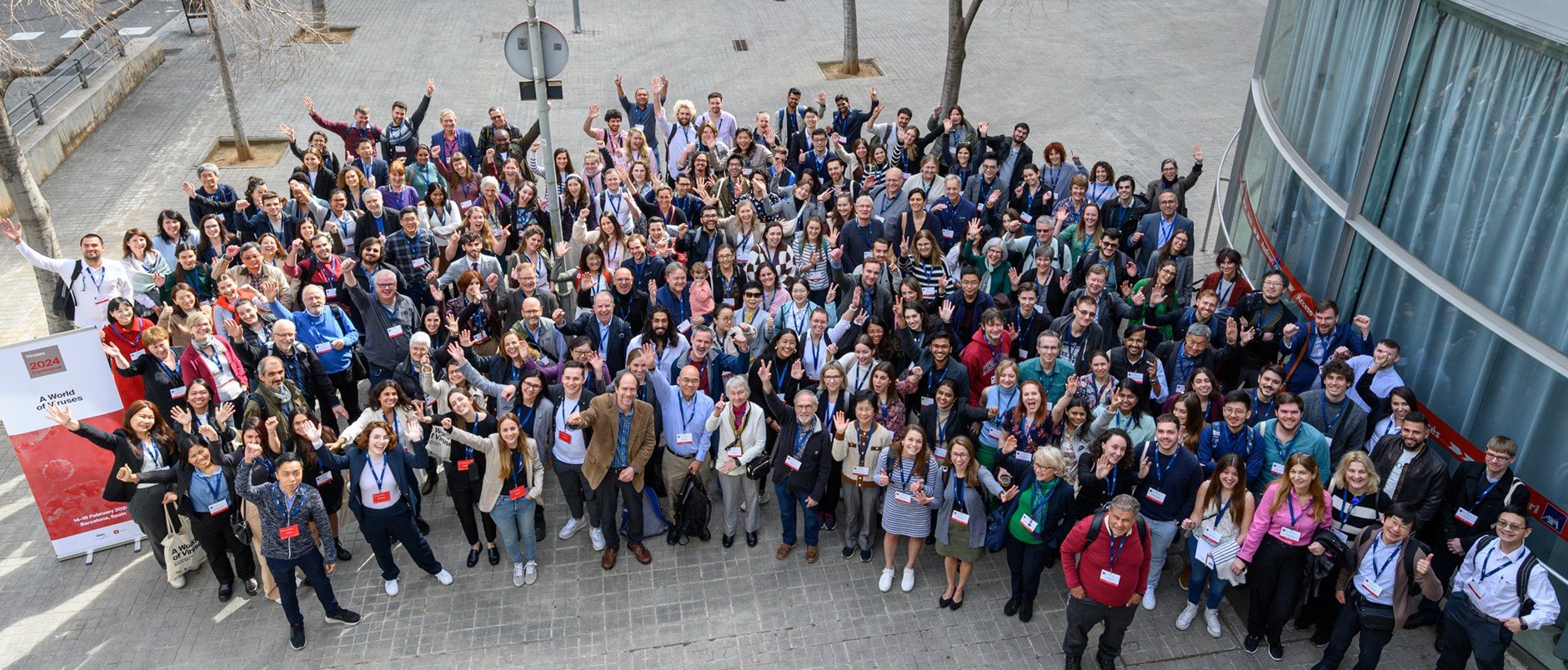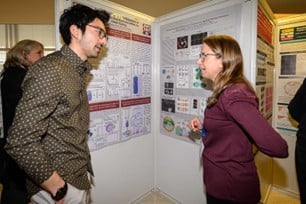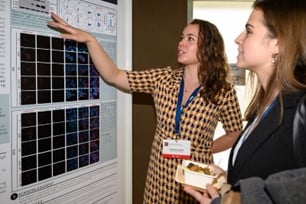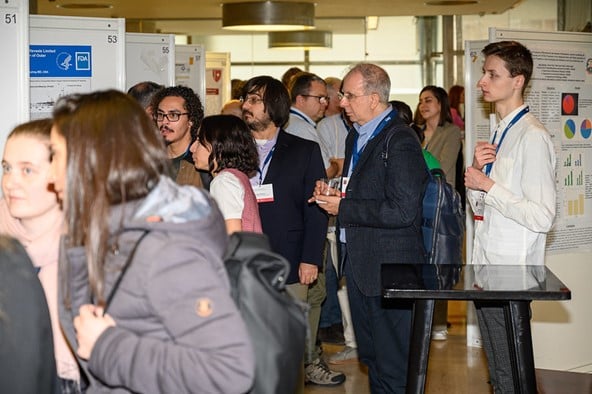
Journal Menu
► ▼ Journal Menu-
- Viruses Home
- Aims & Scope
- Editorial Board
- Reviewer Board
- Topical Advisory Panel
- Instructions for Authors
- Special Issues
- Topics
- Sections & Collections
- Article Processing Charge
- Indexing & Archiving
- Editor’s Choice Articles
- Most Cited & Viewed
- Journal Statistics
- Journal History
- Journal Awards
- Society Collaborations
- Conferences
- Editorial Office
Journal Browser
► ▼ Journal BrowserNeed Help?
Announcements
28 March 2024
Viruses | “Viruses 2024—A World of Viruses” Conference Held Successfully
Viruses pose a continuous threat to global health, making their study an ongoing imperative in scientific research.
Following the successful MDPI Viruses conferences held in Basel (2016), Barcelona (2018 and 2020), and online (2022), the 2024 edition recently convened in Barcelona, Spain from 14 to 16 February. Entitled “Viruses 2024 – A World of Viruses”, this conference served as a platform for international expert scientists and researchers to disseminate their latest discoveries in viral pathogenesis and immune response.
Covering a wide array of topics including molecular and cellular biology, immunology, epidemiology, and public health, this conference facilitated meaningful discussions on the most pertinent issues in current virology.
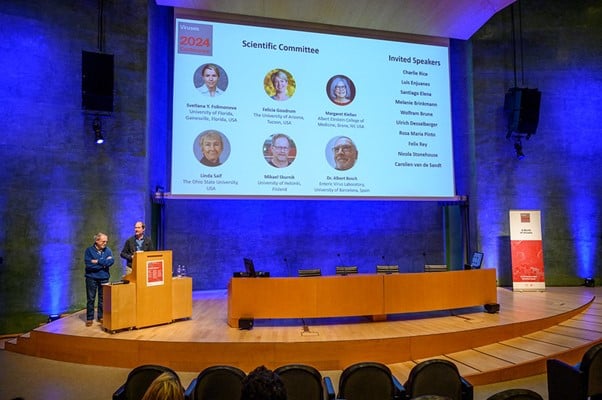 The Auditorium and Convention Center—AXA
The Auditorium and Convention Center—AXA
The event was jointly organized by MDPI and the journal Viruses (ISSN: 1999-4915), with support from the American Society for Virology, the Spanish Society of Virology, the Australasian Virology Society, and the World Society for Virology as collaborating societies.
With 241 attendees from 40 different countries and 190 abstracts received, the congress achieved remarkable participation. Led by Dr. Eric Freed (Editor-in-Chief of Viruses from the National Cancer Institute, NIH—Frederick, MD, USA) and Dr. Albert Bosch (University of Barcelona, Spain), the scientific committee organized sessions covering a diverse range of topics in virology research:
- General topics in virology;
- Antiviral therapies, vaccines, and host defenses;
- Antiviral innate immunity;
- The structure and mechanisms of viral replication;
- Virus–host interactions;
- Pathogenesis and viral evolution.
 Participants during the conference
Participants during the conference
In this post, we will provide you with the highlights of the three days of the “Viruses 2024 – A World of Viruses” conference.
Opening Presentations
The conference began with one of the most anticipated talks by all participants and the one that brought together the largest number of attendees in the auditorium: the presentation of Dr. Charles M. Rice (Rockefeller University, New York, USA) as a guest speaker.
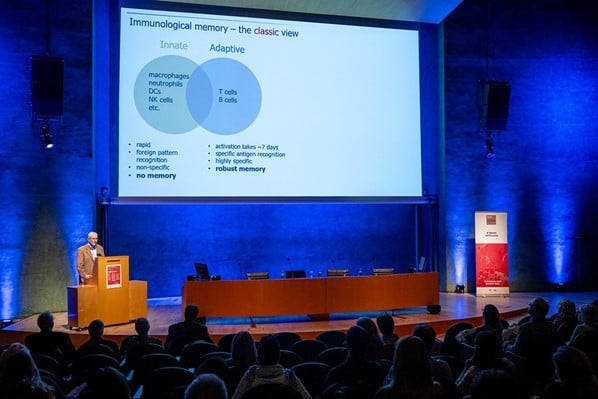 Dr. Charles M. Rice during his presentation
Dr. Charles M. Rice during his presentation
Dr. Rice is a leading figure in Flaviviridae research, particularly in hepatitis C virus (HCV) studies. His extensive career has contributed significantly to our understanding of HCV protein biogenesis and structure. His research group developed the first infectious molecular clone of HCV, along with essential cell culture systems and animal models for studying virus replication and antiviral treatments.
With over 500 published articles, Dr. Rice's pivotal role in HCV discovery and hepatitis treatment earned him the 2020 Nobel Prize in Physiology or Medicine (shared with Harvey James Alter and Michael Houghton).
In his opening presentation, Dr. Rice provided a captivating overview of HCV identification history and the quest for a global cure. He also discussed recent advancements in hepatitis B virus (HBV) research, addressing its significant impact on global health.
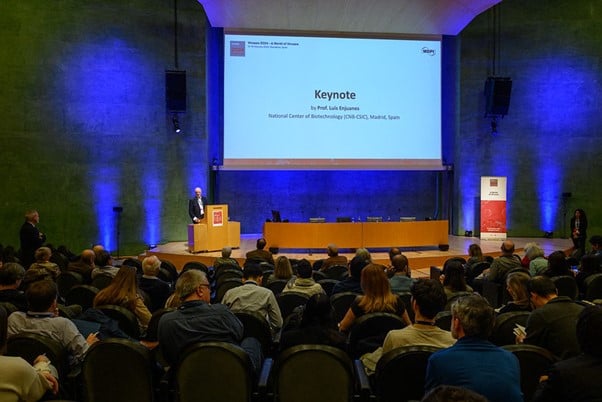 Dr. Luis Enjuanes during his presentation
Dr. Luis Enjuanes during his presentation
The second keynote was delivered by Dr. Luis Enjuanes (National Center for Biotechnology, CNB-CSIC, Madrid, Spain), a highly experienced researcher with over 35 years of expertise in coronavirus studies. His current focus lies in investigating the replication mechanisms, transcription, virulence, and virus–host interactions of coronaviruses.
In his engaging presentation, Dr. Enjuanes provided insights into the origin and spread of the virus responsible for the recent COVID-19 pandemic. He highlighted the latest scientific evidence, indicating a zoonotic origin of the SARS-CoV-2 virus.
Impressions of Attendees

Dr. Eric Freed
Dr. Eric Freed, Editor-in-Chief of the Viruses journal, delivered an enlightening presentation on the ongoing challenges in controlling the HIV/AIDS pandemic. Reflecting on the congress, he expressed his satisfaction with the diverse array of oral presentations:
“We have had a fantastic group of speakers, Nobel Prize laureate (Dr. Rice) and Dr. Enjuanes, along with an excellent variety of guest speakers and some outstanding Ph.D. and postdoc students who have presented excellent work, oral presentations, and posters on their research.”
Professor Mikael Skurnik, associate editor of the journal Viruses, presented his work on the enigmatic Jumbo YerA41 bacteriophage from Yersinia YerA41 to open the session on the structure and mechanisms of viral replication. During his interview, he humorously remarked, “Since most of my colleagues work with plant or animal viruses, and I work with bacterial viruses and bacteriophages, I sometimes feel a little lonely here.” He further added, “This conference provides an excellent opportunity to witness the progress in virology research, which is truly inspiring.”
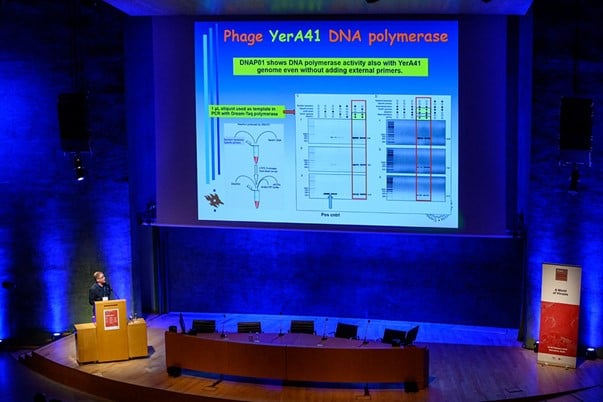 Professor Mikael Skurnik during his presentation
Professor Mikael Skurnik during his presentation
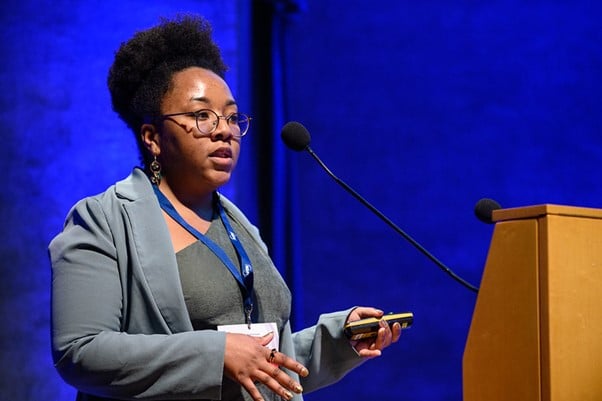 Nefer Candance Dossou
Nefer Candance Dossou
Nefer Candance Dossou was the last speaker of the conference, closing the session on viral pathogenesis and evolution. “The best thing for me is the quality of the guest speakers. The presentation by Dr. Charles M. Rice, who received the Nobel Prize in 2020, has been one of the best moments of this congress.”
Poster Sessions
The two poster sessions took place on the second and third days of the conference. During the lunch break and afternoon, many attendees took the chance to familiarize themselves with the poster presentations. It was a perfect occasion for Ph.D. students and young researchers to engage in discussions regarding their projects in the fascinating world of virology in an inspiring environment.
|
|
|
|
|
|
Awards Ceremony
Another highlight of the conference was the Viruses awards ceremony. Dr. Carolien van de Sandt was presented with the commemorative plaque of the Viruses 2022 Early Career Investigator award, along with CHF 1000, by the Editor-in-Chief of Viruses, in recognition of her exceptional achievements as a young researcher. Dr van de Sandt is interested in the mechanisms underlying the gain and loss of virus-specific CD8+ T-cell function across the human lifespan and in high-risk groups. Her research is of great importance for the development of broadly protective vaccine strategies that aim to harness CD8+ T-cells.
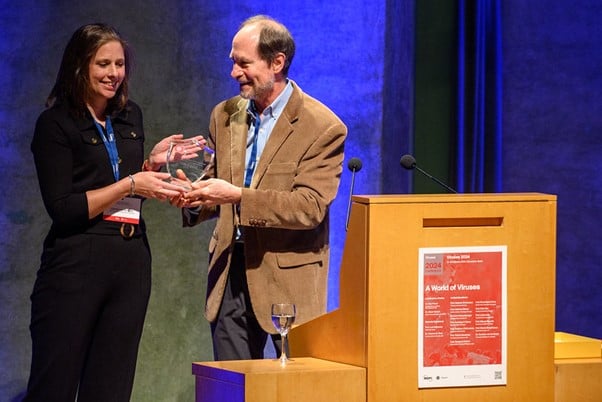 Dr. Carolien van de Sandt receiving the plaque commemorating the Viruses 2022 Early Career Investigator award
Dr. Carolien van de Sandt receiving the plaque commemorating the Viruses 2022 Early Career Investigator award
Additionally, the winners for Best Poster and Best Oral Presentation were announced to recognize the most outstanding works presented during the three days of the conference. Matty Allan received the Best Poster award for his work entitled “Long-Range RNA:RNA Base Pairing Regulates Active Conformations of Frameshift Stimulating Elements in Coronaviruses” (awarded EUR 300). Rebekah Gullberg was awarded the Best Oral Presentation for her talk on “SARS-CoV-2 Virus-Like Particles Reveal Chaperones of Viral Assembly” (endowed with EUR 500). These awards not only celebrate the achievements of the winners but also serve as inspiration and motivation for the rest of the attendees toward scientific excellence.
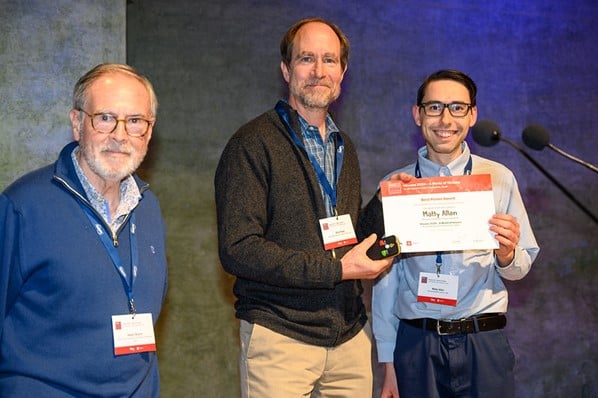 Matty Allan receiving the award for Best Poster
Matty Allan receiving the award for Best Poster
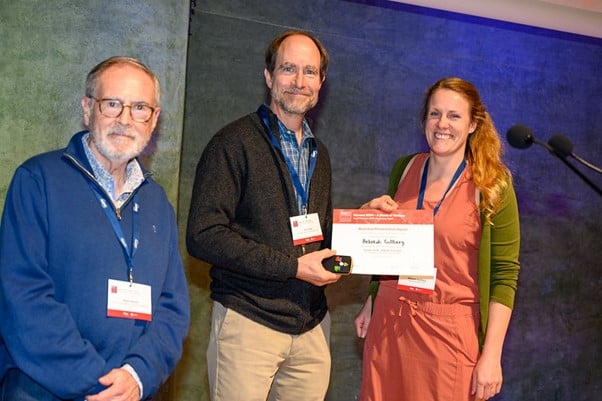 Rebekah Gullberg receiving the Best Oral Presentation certificate
Rebekah Gullberg receiving the Best Oral Presentation certificate
Special Issue: “Viruses 2024—A World of Viruses”
We would like to highlight that the participants of this conference can submit their work to the collection “Viruses 2024 – A World of Viruses” edited by Dr. Freed in the Viruses journal.
Symposium participants, as well as all researchers working in the field, are cordially invited to contribute original research papers or reviews to this Special Issue of Viruses. You can find more information here.
The Viruses journal is indexed in the main databases: Scopus, SCIE (Web of Science), and PubMed, among others. Its current Impact Factor is 4.7 (2022) and it has a Citescore of 7.1 (2022).
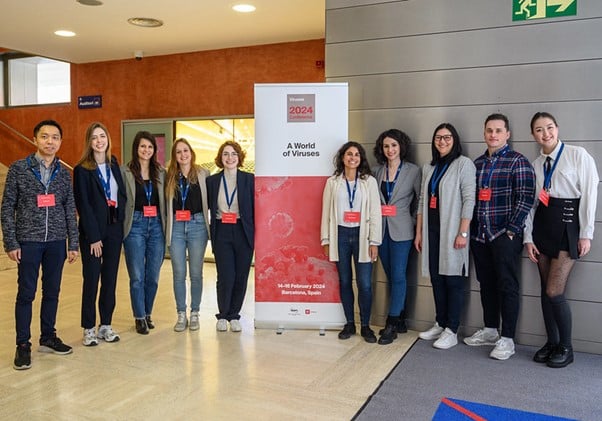 The MDPI conference team that participated in the event
The MDPI conference team that participated in the event
You can also explore the vibrant atmosphere of the conference through our video recap by clicking here.
The Viruses conference has established itself as a leading event in the field of virology for researchers worldwide. We look forward to the next edition of Viruses 2026!
